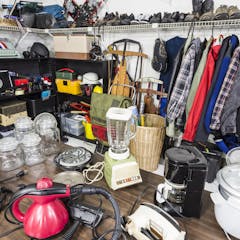
Articles on Solutions Journalism
Displaying 1 - 20 of 93 articles

In the days of online bulletin board systems, community members decided what was acceptable. Reviving that approach to content moderation offers Big Tech a path to legitimacy as public spaces.

A team of scientists has developed a method for creating a new class of plastic materials that are potentially more recyclable than single-use plastics.

One way to prevent the destruction wrought by a devastating earthquake – like the one that hit Morocco in September 2023 – is to construct resilient homes and buildings.

When ideological enemies talk across their great divides, something good can happen – it reduces stereotypes and inflammatory language directed at people who don’t agree on the abortion rights issue.

Nonprofits and concerned residents are teaming up with the local government to solve a daunting problem in a city with the nation’s highest per-capita rate of homelessnesss.

The COVID-19 outbreak presents many opportunities for students to develop needed solutions to real-life problems, says a researcher overseeing school project to produce personal protective equipment.

A community effort is creating do-it-yourself hand-washing stations for the homeless population in Los Angeles.

Inspired by amber and hard candy, researchers figured out a new, needle-free, shelf-stable way to preserve vaccines, making them easier to ship and administer around the world.

Climate journalism can play an important role in painting the picture of a post-carbon economy. It should start by encouraging collective action and a sense of empowerment for everyday people.

Good communication about climate change requires much more than just alarming messages about all the scary impacts of a warming planet.

“Solutions journalism” aims to give more prominence to solution-oriented narratives. It reports on responses to social problems by moving the solutions out of the footnotes.

Fixes for small pieces of massive problems show that overarching crises may be less hopeless than they appear.

People who use an appliance a lot save more from an energy efficient model. With the right app, they could easily get a sense of their own potential savings when they shop.

Without an array of ecosystems and species, it’s tough for farmers to grow crops or ranchers to raise animals.

The internet makes it easier for discarded stuff to land in someone else’s home instead of the dump.

In the ‘World Climate’ simulation, people play delegates to UN climate negotiations and work to strike an agreement that meets global climate goals. Playing it has made thousands want to take action.

Taking this step may improve the quality of life for vulnerable people and reduce the amount of air conditioning they use, making their neighborhoods less prone to power outages.

Does it make sense to compare the percentage of black Americans shot by police to the percentage of black Americans in the population? A new analysis suggests a different way of looking at the data.

As EVs make more inroads, giving tenants somewhere to plug in their cars could become a selling point.

Testing new industrial chemicals is essential for public health and the environment. But animal testing is costly, and too many chemicals are left untested. A new AI tool may solve the problem.
